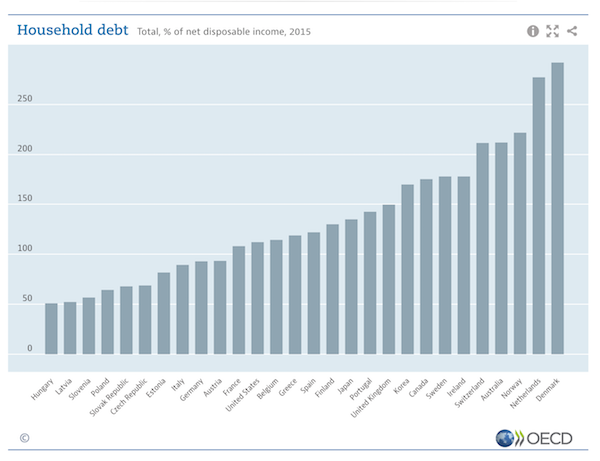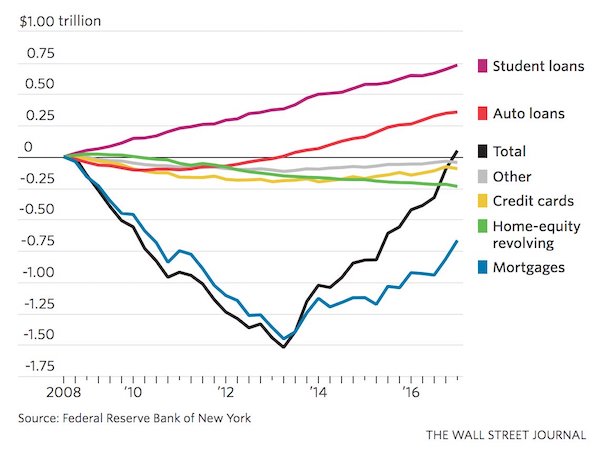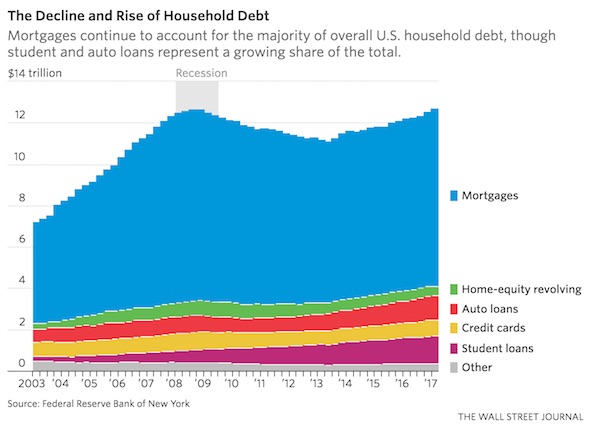
Mathew Brady Grand Review of the Army. Units of XX Army Corps, Army of Georgia, Pennsylvania Ave. near the Treasury, Washington, DC. May 24 1865

First, don’t forget to read my article earlier today, Corona Cartoon Numbers, because thay may teach you a thing or two about the “official” numbers.
Those numbers for Feb 11:
• Cases 43,112 vs 40,614 yesterday. That’s up 2498
• Deaths 1,108 vs 910 yesterday. Up 108.
• Hubei provincial health commission said the province had confirmed a total of 31,728 cases with 974 deaths by the end of Monday, a fatality rate of 3.07%. More than three-quarters of the deaths have been in the provincial capital Wuhan. The commission said there were still a total of 16,687 suspected but unconfirmed cases
Bizarre news item: In January, several individuals on a Paris takeoff flight bound for Shanghai were diagnosed with the #Coronavirus— in the opposite travel direction of the outbreak epicenter.
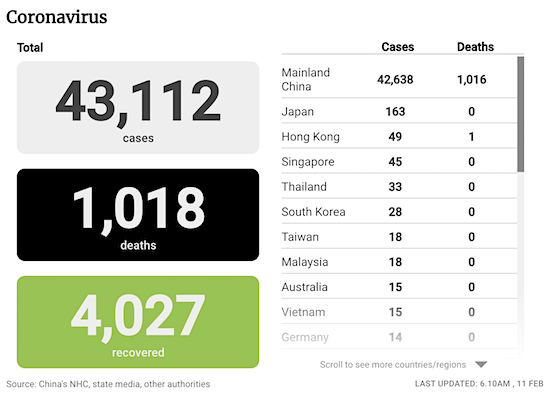
An update of a familiar BBC graph:
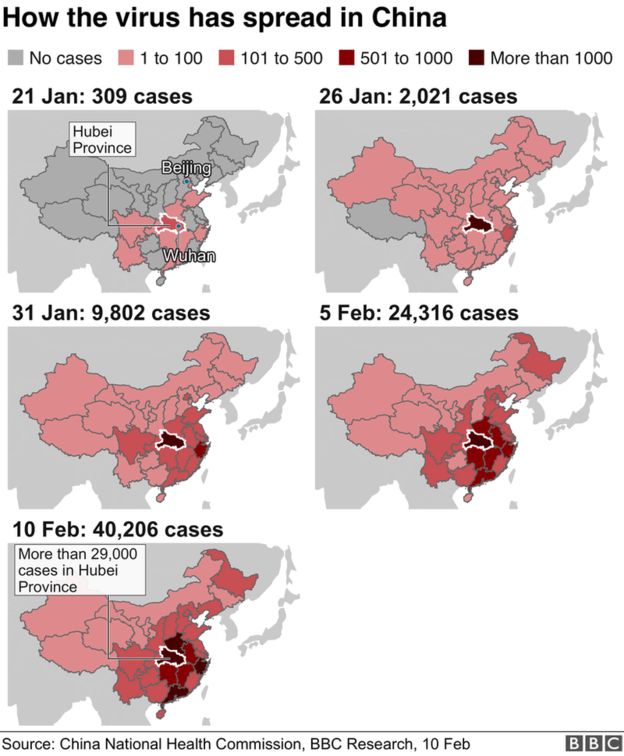
And this from the Yokohama cruise ship. 439 tested, 135 positive. 32.5%.
The Holland America cruise ship Westerdam, which had gotten permission to dock in Thailand after 9 days at sea and 3 countries refusing entry, has been denied entry by Thailand at the last minute as well. There are no known carriers aboard.

And this guy, bless his soul, has been disappeared.:
Lawyer and citizen journalist Chen Qiushi: “I’m not even afraid of death. You think I’m afraid of the Communist Party?”
Lawyer and citizen journalist Chen Qiushi vanished while documenting the coronavirus lockdown in Wuhan. He spent weeks filming patients and overrun hospitals pic.twitter.com/pdf7YE8ell
— SCMP News (@SCMPNews) February 11, 2020

Time flies when you’re having fun with viruses. It’s already been 9 days since I explained in The Party and the Virus: “Never a bad word should be uttered about the Party, and nothing said that could embarrass it.”
The Party blames individuals, so it can escape the blame. Problem with that is that is the Party is wrong, it won’t be corrected.
• 3 Wuhan Officials Summoned To Explain Failings (SCMP)
A special task force reviewing prevention efforts in Wuhan, Hubei’s capital, has summoned three local officials for emergency meetings and detailed their failings in containing the outbreak. Wuhan deputy mayor Chen Xiexing and two district chiefs in the city, Lin Wenshu and Yu Song, were called in for meetings, state news agency Xinhua reported on Tuesday. Officials found to have been negligent would be held accountable, the report said. Headed by Vice-Premier Sun Chunlan, the task force was set up by the Communist Party’s Central Committee. Mainland media reported on Friday that Chen Yixin, a protégé of President Xi Jinping, had been added to the team.
China has had nearly 1,000 cluster outbreaks of the coronavirus and found that 83 per cent occurred in families, with the rest arising in hospitals, schools and shopping malls, said Wu Zunyou, chief scientist of China’s Centre for Disease Control and Prevention, at a media briefing on Tuesday. Among the cluster cases, 86 per cent were first or second-generation transmissions – people who lived or travelled in Hubei, contracted the virus and passed it to people who were in close contact with them, such as family members or people who shared meals with them. “Occurrences of these cluster cases showed our control and treatment measures have been effective and it did not spread from small units to bigger areas of society,” Wu said.

Let’s see your priorities. For now, “gets back to work” looks a bit much.
Do note: when Xi comes out of hiding to announce it will be a hard fight, expect trouble.
• China Gets Back To Work As Death Toll Reaches 1,018 (SCMP)
Health authorities in China reported on Tuesday 108 new fatalities attributable to the novel coronavirus, bringing the national death toll to 1,018. This is the first time more than 100 people have died from the disease in a single day on the mainland. The National Health Commission also reported 2,478 new confirmed cases of the illness, bringing that total to 42,638 as of Monday. Of the new deaths, 103 were in Hubei province – the epicentre of the novel coronavirus epidemic – and five in other provinces. As millions of people in China prepare to return to work, Beijing has made clear that the reopening of businesses must not be hampered by “crude and oversimplified” restrictions.
As many as 160 million people are expected to be returning to their cities of employment over the following week, according to Xu Yahua, director of the transport services department at the Chinese ministry of transport. The coronavirus outbreak coincided with the Lunar New Year travel season, when millions of migrant workers traditionally travel to their homes to spend the holiday with their families. As part of China’s response to the outbreak, the holiday season was extended to February 18. Many local authorities – from megacities like Beijing and Shanghai to remote villages – have curbed public transport provision and restricted people from moving outside their communities during the outbreak.
Many local governments have also adopted a registration system and prior approval requirements for companies planning to resume production. Some business owners have been detained for resuming work in advance. But Beijing has now made clear these practices were not in line with the requirements and policies of the central authorities. “Such a tendency must be stopped,” said Ou Xiaoli, director of social development at the National Development and Reform Commission, the country’s top economic planning agency. “We will strictly stop restricting the production resumption in an oversimplified and crude way,” he said, at the same press conference on Tuesday.

Anything public has lost most of their income. Whaddaya mean no lay-offs?
• China Firms Cut Staff On Virus Outbreak As Xi Vows No Large-Scale Layoffs (R.)
A Chinese media company said it will lay off 500 employees due to the coronavirus outbreak, the latest among a string of firms to do so in the past two weeks as the epidemic takes a toll on small-to-medium sized businesses. Xinchao Media, which places advertisements in elevators, will cut 10% of its workforce to “ensure survival”, the company said in a post on its official WeChat account on Monday, which carried the transcript of an internal speech by CEO Zhang Jixue. “To overcome the epidemic, you have to step on the brakes, jam the cash flow, reduce costs,” Zhang said, as he noted the company’s cash reserve of 1 billion yuan ($143 million) would likely be enough for only 6-7 months in the absence of income.
The job cuts come even as President Xi Jinping said the government would prevent large-scale layoffs caused by the virus outbreak – which has killed more than a 1,000 people in mainland China and infected over 40,000. Authorities said on Tuesday they will roll out measures to stabilize jobs. But many companies are hurting from disruptions felt since late-January after local governments extended Lunar New Year holidays and urged people to stay home. Beijing’s “Karaoke King” has said it wants to terminate contracts with all its 200 employees as it shut its outlets due to the outbreak, local media reports said. The karaoke chain did not immediately return calls made by Reuters on Tuesday.
Chinese restaurant chain Xibei, which has over 360 outlets, said it was worried about wages for its roughly 20,000 workers given how the epidemic had impacted its income. “We need 156 million yuan a month to pay our workers, and if the epidemic continues, and cash flow continues to be inadequate, we will not be able to hold up for much longer,” it said on its official Weibo account. In Beijing, only 11,500 restaurants were operational mid last week, or 13% of the total, the Beijing Municipal Market Supervision Bureau said.

Cited this last week. Individuals get the blame, so the Party does not.
• Senior Chinese Officials ‘Removed’ As Death Toll Hits 1,000 (BBC)
China has “removed” several senior officials over their handling of the coronavirus outbreak – as the death toll passed 1,000. The party secretary for the Hubei Health Commission, and the head of the commission, were among those who lost their jobs. They are the most senior officials to be demoted so far. The deputy director of the local Red Cross was also removed for “dereliction of duty” over “handling of donations”. The two Hubei party officials will be replaced by a national figure – the deputy director of China’s National Health Commission, Wang Hesheng. On Monday, some 103 died in Hubei province alone, a daily record, and the national death toll is now 1,016. But the number of new infections nationally was down almost 20% from the day before, from 3,062 to 2,478.
Hubei’s health commission confirmed 2,097 new cases in the province on Monday, down from 2,618 the previous day. According to state media, there have been hundreds of sackings, investigations and warnings across Hubei and other provinces during the outbreak. But removal from a certain role – while regarded as a censure – does not always mean the person will be sacked entirely, as it can also mean demotion. As well as being removed from their posts, officials can also be punished by the ruling Communist Party. For example, the deputy head of the Red Cross, Zhang Qin, was given “a serious intra-Party warning as well as a serious administrative demerit”, state media said. Earlier this month, the deputy head of the Wuhan bureau of statistics was removed, also with a “serious intra-party warning a well as a serious administrative demerit for violating relevant regulations to distribute face masks”.
The Hubei health commission said the province had a total of 31,728 cases with 974 deaths by the end of Monday – a fatality rate of 3%.

“..a culture of suppression and “systemic impotence”..”
• Outspoken Academic Blames Xi Jinping For ‘Catastrophe’ Sweeping China (G.)
A prominent Chinese intellectual has become the first high-profile public figure to lay the blame for the coronavirus crisis at the feet of the country’s leader, Xi Jinping, saying the spread of the deadly virus has “revealed the rotten core of Chinese governance”. As the crisis expands across the country, Xu Zhangrun, a law professor from one of the country’s top universities, lambasted the government under Xi in an essay titled: Viral Alarm, When Fury Overcomes Fear. In it, Xu laid the blame for the current national crisis at the feet of Xi and a culture of suppression and “systemic impotence” that he has created. The virus has now killed more than 1,000 people inside China.
“The cause of all of this lies with The Axelrod and the cabal that surrounds him,” Xu writes, referring to Xi, according to a translation of the article by historian Geremie Barmé published on Monday by the website ChinaFile. “It is a system that turns every natural disaster into an even greater man-made catastrophe. The coronavirus epidemic has revealed the rotten core of Chinese governance; the fragile and vacuous heart of the jittering edifice of state has thereby shown up as never before.” Xu describes the outbreak as a “national calamity” that involves politics, the economy and “nation’s ethical fabric” making it “more perilous than total war itself”.
After weeks of disappearing from public view, Xi on Monday visited a neighbourhood and hospital in Beijing where he held a video call with health workers in Wuhan. Coverage of his appearance filled the front page of the official People’s Daily on Tuesday. Xu’s essay captures growing public anger at the government, which has reached a new peak after the death of a doctor and whistleblower last week. Officials have tried to blame lower-level bureaucrats, but top bosses have not escaped. On Tuesday, the party secretary of health commission of Hubei province and the director of the Hubei provincial health commission were both fired.

Professor Gabriel Leung, around whose January 31 report I based my Feb 5 article The Big Lockdown:
• Expert Warns Infection Could Reach 60% Of World’s Population (G.)
The novel coronavirus epidemic could spread to around two-thirds of the world’s population if it cannot be controlled, according to Hong Kong’s leading public health epidemiologist. His warning came after the head of the World Health Organisation (WHO) said recent cases of coronavirus patients who have never visited China could be the “tip of the iceberg”. Professor Gabriel Leung, chair of Public Health Medicine at Hong Kong University, said the overriding question was to figure out the size and shape of the iceberg. Most experts thought that each person infected would go on to transmit the virus to around 2.5 other people. That gave an “attack rate” of 60-80%.
“Sixty per cent of the world’s population is an awfully big number,” Leung told the Guardian in London, en route to an expert meeting at the WHO in Geneva. Even if the general fatality rate is as low as 1%, which Leung thinks is possible once milder cases are taken into account, the death toll would be massive. He will tell the WHO expert meeting that the main issue is the scale of the growing worldwide epidemic and the second priority is to find out whether the drastic measures taken by China to prevent the spread have worked – because if so, other countries should think about adopting them. Leung – one of the world’s experts on coronavirus epidemics, who played a major role in the Sars outbreak in 2002-2003 – works closely with other leading scientists such as counterparts at Imperial College London and Oxford University.
At the end of January he warned in a paper in the Lancet that outbreaks were likely to be “growing exponentially” in cities in China, lagging just one to two weeks behind Wuhan. Elsewhere, “independent self-sustaining outbreaks in major cities globally could become inevitable” because of the substantial movement of people who were infected but had not yet developed symptoms, and the absence of public health measures to stop the spread. Epidemiologists and modellers were all trying to figure out what was likely to happen, said Leung. “Is 60 to 80% of the world’s population going to get infected? Maybe not. Maybe this will come in waves. Maybe the virus is going to attenuate its lethality because it certainly doesn’t help it if it kills everybody in its path, because it will get killed as well,” he said.
[..] In January Leung published two papers in the Lancet. The first examined the damage done by social unrest to the mental health of the Hong Kong population. The second was on the spread of coronavirus. “So the two have now come together. The first has made the second impossible to deal with – impossible. I mean, how do you bring your population along when there’s been this huge chasm in society?” he said.

Western governments and media are as guilty here as China. No use singling out China. Everyone just wishes it would all go away. Everyone’s more afraid for the economy than of the virus. Until they can’t. Dumb piece. Find your own faults first, not those of the other. You really want people to believe western governments would react differently?
• China Delayed Reporting The Outbreak And The WHO Is Staying Mum (Vox)
Nearly six weeks after China announced the coronavirus outbreak, there’s still a surprising amount we don’t know about this newly discovered disease. But one thing is becoming clear: China’s silence in the earliest days of the crisis may have made it worse. Chinese authorities delayed informing the world about the severity of a deadly disease spreading within the country’s borders — even trying to muzzle whistleblowers, like the late Dr. Li Wenliang. Now hailed as a national hero, Li was forced on January 3 by police to sign a letter saying he spread “untrue speech” for warning colleagues about the virus that eventually took his life. With more than 40,500 people infected and 910 deaths, China’s missteps early on seem increasingly fateful.
The fact that the international community has not acknowledged those missteps is also consequential. On Friday, President Trump applauded China. “They’re working really hard and I think they’re doing a very professional job,” Trump told ABC News. Meanwhile, the leading global health body, the World Health Organization, has stayed mum about China’s blunders — and is drawing criticism for failing to publicly criticize the country and creating “a false sense of security” about an emerging health crisis. But the reality is this: China’s mishandling and the ensuing silence from the international community is emblematic of how the global system governing the international response to pandemics fails to work, half a dozen global health experts told Vox.
Though we have global health laws — in particular, the International Health Regulations, or IHR — meant to guide countries dealing with outbreaks, they’re not actually enforceable. “You can’t penalize [countries that] don’t follow it,” said Devi Sridhar, the chair in global public health at the University of Edinburgh. Instead, the international community has to rely on “soft law and norms” — or “disease diplomacy.” This means that when a pandemic threat looms, the world has little recourse to punish those that fail to live up to the IHR for not detecting a public health problem, or hiding a crisis, even when that mishandling imperils the lives of billions. And with just about every outbreak, history repeats. “Our global outbreak response system depends on the full participation of all actors at all levels of government,” Steven Hoffman, director of the Global Strategy Lab and a professor of global health at York University, summed up. “But our system is only as strong as its weakest link.” Understanding the IHR, and how disease diplomacy is done today, helps explain why.

Not just economic growth. Flaws in the Party system, which is incapable of adapting to being found out.
• Coronavirus Exposes Fundamental Flaws In China’s Economic Growth Model (SCMP)
The outbreak of the novel coronavirus, which has killed over 1,000 people and infected over 40,000, has exposed fundamental flaws in China’s governance system and its growth model – the excessive concentration of power, information and resources in the hands of a powerful state. But given the path of China’s political and economic evolution, it is difficult for China to loosen its grip on power as a response to so-called black swan events such as the coronavirus. The most likely outcome is that Beijing will continue to strengthen centralised control, which in turn is a greater threat to China’s prospects than the virus itself.
When it is done right, a centralised political system means the government can deliver positives such as rapid economic growth, but it also make it possible for the government to place emphasis on the wrong things, which has the potential to lead to uncertainty and even disaster for society. There is precedent that China tends to enhance centralisation as the solution to a problem that has stemmed from over control. The “new normal” concept, which was adopted by the state in 2014, dissociated the political legitimacy of the Chinese government from economic growth, therefore reducing the pressure on local Chinese authorities to deliver. And while the concept had the good intention of seeking high quality growth, it has, in reality, made the local authorities less friendly to the private sector.
To achieve high economic growth, local governments have had to free up market forces and allow the private sector to thrive, but without the pressure, they do not have the incentive to conduct the necessary political and economic liberalisations to entertain private investors. As a result, the central government is increasingly reliant on state-owned enterprises and state money to maintain social stability and to deliver environmental improvement, while the private economy is gradually marginalised and local autonomy is weakened.

Co-author Dr Zhong Nanshan was very very wrong when he said late January that the epidemic would be over in 7-10 days. Talked about that. Just saying.
• Coronavirus Could Have Incubation Period Of 24 Days (Ind.)
Medical researchers in China have found the incubation period for coronavirus ranges up to 24 days — 10 days longer than experts previously thought. The research was co-authored by Dr Zhong Nanshan, who discovered the SARS coronavirus in 2003 and has been appointed as a leading advisor in managing the current coronavirus crisis. Current advice from health organisations and ministries say the virus’ incubation period is as long as 14 days, based on the incubation period of previous MERS viruses. Public Health England and the Department of Health and Social Care has urged anyone travelling from specific countries, including China, to quarantine themselves at home for 14 days.
The findings, which have not yet been peer reviewed, were published on Sunday and titled ‘Clinical characteristics of 2019 novel coronavirus infection in China’. They found only 1.18 per cent of patients “had a direct contact with wildlife”. The majority of the patients had contracted the virus from being in contact with people from Wuhan, where the centre of the outbreak is. More than 80 percent of patients developed lymphopenia, which is a state where a specific white blood cell that is part of the body’s first-line defence against diseases is reduced.

Wait till we see car sales in China.
• Look How Low Oil Prices Have Fallen (F.)
West Texas Intermediate oil is trading just below $50 midday Monday. This is a very low price for the US benchmark, otherwise known as WTI. The lesson: don’t underestimate the impact of the Coronavirus on the oil market and the greater American economy. The price of WTI last fell below this level for a couple of weeks at the end of 2018 and start of 2019. Other than that moment, the price has not been this low since September of 2017. The concern is that the current low price is not a blip like last year but rather a sustained drop or maybe only the beginning of a situation that could get significantly worse. If the Coronavirus continues to interfere with the Chinese economy and international trade, oil prices are likely to fall further. After all, China is the world’s largest importer of oil by a wide margin, accepting 10.78 million barrels per day in December, 2019.
Here’s who really needs to keep an eye on these low oil prices.
- First is, of course, oil producers—from international oil companies like Exxon and Chevron to wildcatters in shale fields—need to beware.
- Next, we have the oil industry employees and supplemental industries like truck drivers, welders and restaurant workers near oil fields who could all be affected.
- Financiers and investors—hedge funds, private equity and retail investors alike—who fund oil operations are worried about failed projects if revenue drops.
- Airlines need to watch oil volatility, because they have an opportunity to buy jet fuel at low prices if it drops, which allows them to hedge for when higher prices eventually return.
- Certain state governments, such as Alaska, Wyoming, Texas, New Mexico, Oklahoma, North Dakota and others that fund their budgets in part with taxes on oil production and sales have to beware, as they may be facing unexpected lean times.
- Last, businesses that contract for products to be trucked around the country should be looking for discounted pricing.
Despite all the talk about electric vehicles and alternative energy, oil is still the vital liquid that keeps much of our economy moving. We are reminded of that at times like these, when the oil market is anticipating volatility and change.

Well, if the virus gives up later this very day, he might be right. But not a minute later.
• Coronavirus Could Trim 1 Percentage Point From China GDP Growth – Gov’t. (R.)
Zeng Gang, vice chair of the National Institute for Finance and Development, compared the current crisis with the SARS epidemic of 2003, when China’s growth declined by about 2 percentage points in a single quarter. “The impact of this epidemic on the economy in the first quarter is expected to be comparable,” Zeng said in a commentary published in the 21st Century Business Herald newspaper. “At present, according to different scenario assumptions, researchers expect the negative impact of the epidemic on full-year GDP growth to be in the range of 0.2% to 1%.” If the official response to the epidemic is timely and effective at limiting its spread, long-term growth trends would not be significantly affected, Zeng said.
“But in the short term, the epidemic’s impact on economic activity cannot be ignored, especially with tertiary industries and small enterprises with tight cash flows facing greater pressures,” Zeng said. Zeng said difficulties for small companies could prompt a rise in bankruptcies and put upward pressure on the unemployment rate in the first quarter. “The employment situation is not optimistic. This will also pose a serious challenge to the macro policy goal of ‘employment first’,” he said. Chinese President Xi Jinping said on Monday that the government would prevent large-scale layoffs, Chinese state television reported.
China’s central bank has taken steps to support the economy, including reducing interest rates and flushing the market with liquidity. It has also said it will provide special funds for banks to lend to businesses. Analysts at Citi said they expect growth to slow significantly despite expectations of more proactive fiscal policy and more accommodative monetary policy. “Assuming the virus is contained by the end of March, we revise down our 20Q1 GDP growth forecast considerably to 3.6% and the annual growth modestly to 5.3%”, Citi analysts said in a note. Citi previously forecast first-quarter growth of 4.8% and full-year growth of 5.5%.

But GDP growth only 0.2% lower?
• China Q1 Smartphone Shipments To Fall More Than 30% (CNBC)
China’s smartphone shipments for the three months ending in March could decline by more than 30% from the same period a year ago, International Data Corporation said on Tuesday. The world’s largest smartphone market could experience a so-called “Black Swan effect” in the first half of the calendar year due to the new coronavirus outbreak that has killed more than 1,000 people on the mainland, according to the research firm. [..] “The coronavirus outbreak impacted the Lunar New Year’s shopping season in late January and is also expected to have adverse effects in the following months,” IDC said in a statement, adding that it expects “China’s smartphone shipments to drop more than 30% year-on-year in 2020Q1.”
The virus outbreak will also “create uncertainty in product launch plans, the supply chain, and distribution channels, in the mid and long term,” IDC said. Research firm Canalys earlier this month predicted China’s smartphone shipments could drop by as much as 50% between the last three months of 2019 and the first three months of 2020. “Technology vendors are likely to stall marketing activities as they are unlikely to divert attention to new product launches, such as 5G devices,” Canalys said in a Feb. 3 report. “It will take time for vendors to change their product launch roadmaps in China, which is likely to dampen 5G shipments in 2020.”

Curious where this will go.
• US Charges Four Chinese Military Officers Over Equifax Hack (BBC)
The US has charged four Chinese military officers over the huge cyber-attack on credit rating giant Equifax. More than 147 million Americans were affected in 2017 when hackers stole sensitive personal data including names and addresses. Some UK and Canadian customers were also affected. Announcing the indictments, Attorney General William Barr called the hack “one of the largest data breaches in history”. According to court documents, the four are allegedly members of the People’s Liberation Army’s 54th Research Institute, a component of the Chinese military.
They spent weeks in the company’s system, breaking into security networks and stealing personal data, the documents said. The nine-count indictment also accuses the group of stealing trade secrets including data compilation and database designs. The whereabouts of the suspects is unknown and it is highly unlikely that they will stand trial in the US. FBI Deputy Director David Bowdich said: “We can’t take them into custody, try them in a court of law, and lock them up – not today, anyway.”

The country that never tires of embarrassing itself.
• Aboriginal Australians Are Not ‘Aliens’, Cannot Be Deported – High Court (G.)
The Australian government has released an Aboriginal man from immigration detention after a landmark high court case decided Aboriginal Australians are not aliens for the purpose of the constitution and cannot be deported. On Tuesday afternoon the acting immigration minister, Alan Tudge, said the government is still reviewing the decision but “in the light of the court’s ruling, Mr [Brendan] Thoms was this morning released from immigration detention”. The case was a major defeat for the deportation powers of Peter Dutton’s home affairs department and a significant development in the rights of Indigenous Australians. In a four-to-three split decision the high court ruled that Aboriginal people with sufficient connection to traditional societies cannot be aliens, giving them a special status in Australian constitutional law likely to have ramifications far beyond existing native title law.
The majority of the high court ruled that New Zealand-born Brendan Thoms was not an alien and the commonwealth therefore did not have power to order his deportation. The court was not able to decide if the second plaintiff, Daniel Love, was an Aboriginal Australian, requiring a further hearing to establish whether he is accepted as a member of the Kamilaroi tribe. Speaking outside the court earlier, the men’s lawyer, Claire Gibbs, called on the government to immediately release Thoms, who had been in immigration detention for 500 days. Love had previously been released in September 2018. Gibbs said she was “confident” Love will also be found not to be an alien and told reporters the pair will seek “significant” damages.

Nobody’s looking at New Hampshire. It’s an illusion. Trump is only watching out of Schadenfreude. The only people who care about Democrats today are Democrats. And they have themselves to blame for that. The only thing is that Biden and Warren, on the brink of annihilation, might come with heavy and utterly ridiculous allegations vs ButtGeek and Bernie.
• ‘The World Is Looking At New Hampshire’ – Bernie Sanders (R.)
In Plymouth, Buttigieg tried to reach out to undecided voters, referring to “future former Republicans” who he said were more than welcome to back his campaign. “It’s decision time,” Buttigieg said. He took a shot at Sanders, saying that the self-described democratic socialist would have a hard time pulling in moderate voters. “Knowing how much depends on bringing Americans together, we cannot risk alienating Americans at this critical moment,” he said. “And that’s where I part ways with my friend Senator Sanders.” In a separate event, Sanders aimed his attacks at Trump. “I know not everybody agrees with everything I say, but I think what we can agree about is that we cannot continue having a president who is a pathological liar,” Sanders told a crowd at a sports club in Manchester.
‘The world is looking at New Hampshire:’ Vermont Senator and Democratic presidential candidate Bernie Sanders makes closing pitch to voters https://t.co/VJB1Aw6lNv pic.twitter.com/EQDOfv1SqG
— Reuters (@Reuters) February 11, 2020



The Automatic Earth will not survive without your Paypal and Patreon donations. Please support us.



